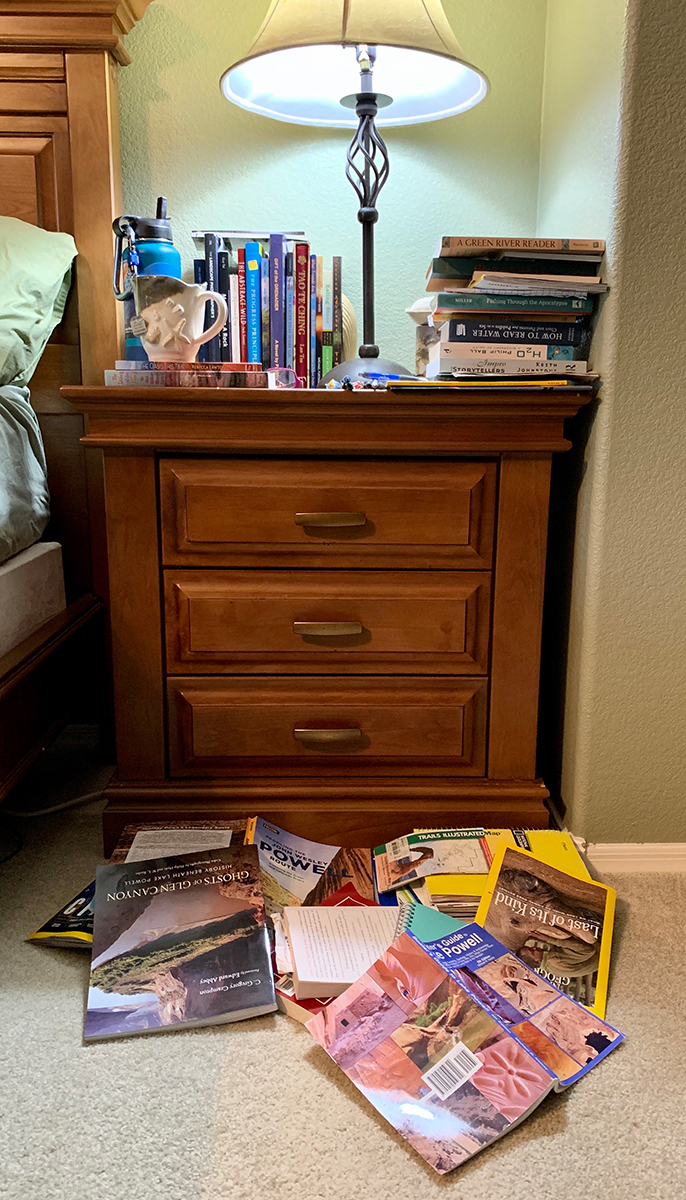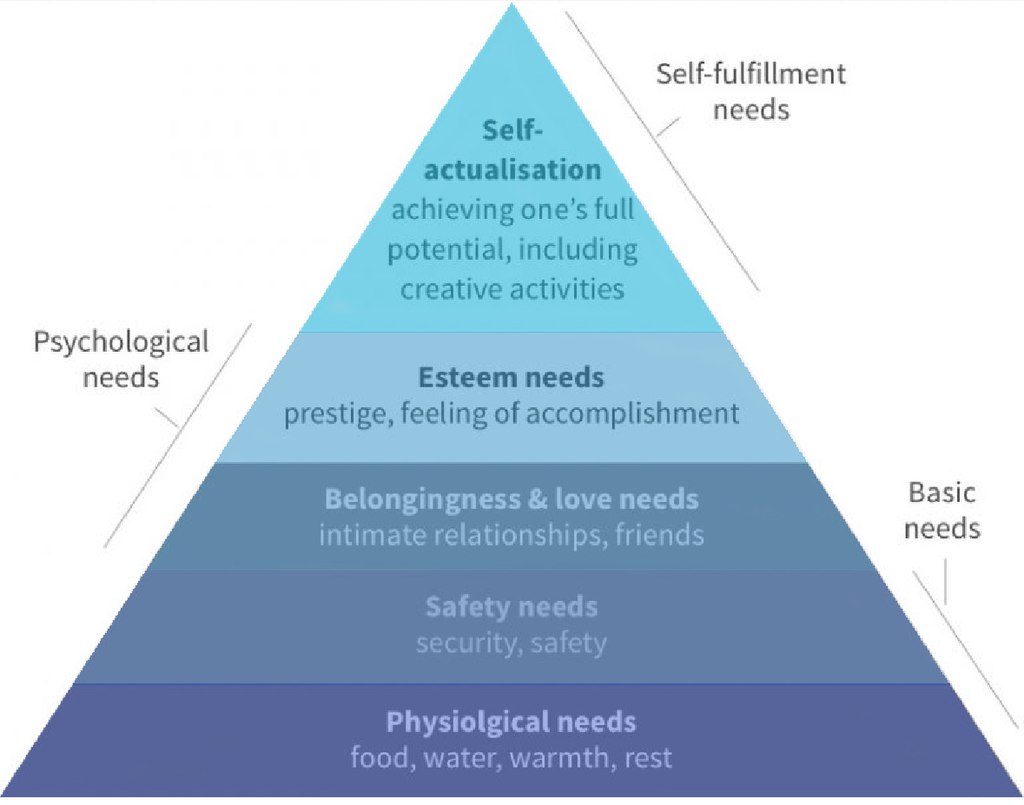May I Have Your Attention Please

Dear Bubbles:
Why can I never finish what I start? Especially when I sign up for online classes and books and courses. Is it fear? And how can I motivate myself to finish something I start?
~Laurie
Dear Laurie:

I have a confession to make. I’m have a mild case of tsundoku, which is the practice of buying books, piling them on bookshelves, dressers, desks, even the floor, but not reading them. I say “mild” because I’ve actually started reading almost every book that’s passed through my front door. I just haven’t finished them. (Ironic, perhaps, considering I admitted loving everything about the book publication process in last week’s post…)
I can’t make out a pattern to why I finish some and not others. Most of the time, I don’t have any reason for stopping partway through. Occasionally, the material wasn’t interesting enough to hold my attention. Perhaps it was too slow, too repetitive, too easy. Sometimes, the content was over my head. Too fast, too technical, too hard.
If you recall psychologist Mihaly Cziksentmihalyi’s Experience Fluctuation Model (which I described in an earlier Dear Bubbles “Keeping it Fresh” post), this should come as no surprise. In order to experience flow during an activity like reading, taking a class, or photography, a high skill level and high challenge level must coexist. If the balance of skill level and challenge level is off—too high or low—feelings of apathy, boredom, and anxiety can materialize.
We can push through these emotions, especially if we know when they are likely to occur and are mindful enough of our own behaviors and responses to external stimuli. The Experience Fluctuation Model, though, does not explain why we lose our focus and motivation to continue working through them. It doesn’t explain why I stuff a bookmark (or a tissue, receipt, or old photograph serving as a bookmark) half-way through a perfectly respectable book and rarely come back to it to finish it.
The Oxford Dictionary defines concentration as “the action or power of focusing one’s attention or mental effort.” Through our main five senses—seeing, touching, hearing, smelling, and tasting—experts believe our brains take in approximately 11 million bits of information per second. (Encyclopedia Britannica suggests that sight is responsible for up to 10 million bits of information alone). We can’t—and don’t—pay attention to most of that. Csikszentmihalyi one estimated the processing capacity of the brain at 120 bits per second. Most experts have settled on an average 50-60 bits per second.
Our brains filter out extraneous information to focus the most important stimuli, namely those that are important to our survival. Other reasons we may pay attention to something are based on:
- Our ability to concentrate
- Our working memory capacity
- Our current workload
- How conspicuous something appears
- Our expectations of something’s existence
While our access to information, particularly in the digital media age, has increased, our brains have not evolved to accommodate this constant onslaught. Noise and distractions grab at our limited attention span. When exposed to such quantity of details, especially those unimportant to our survival (and thus, equal in their unimportance), we can succumb to the “Shiny Chicken Syndrome.” It’s also known as the “Squirrel! Syndrome.” This is where we lose focus in the middle of a…hey, look over there! Something shiny!
(This happens to me every time a new book arrives…)
Information overload can also cause stress and anxiety which affects, at least, our ability to concentrate and our working memory capacity. Each of us every day carries around our own bag of stress, from everything from making sure the kids get fed before their soccer practice to keeping a job we don’t hate and paying bills on time to fighting through life-threatening health issues. We all struggle every day, big and small, in our own ways. Top that off with our tiring everyday workloads, where many of us have a propensity to shove as many tasks as we can into such a small amount of time, you can start to see how paying attention under our normal circumstances is a challenge.
These are not normal times right now. Stop for a second to consider the state of the world. We have a threat to our survival. Even if you or the people in your community aren’t immediately impacted by health trauma, the unprecedented upheaval of normalcy alone has triggered an enormous amount of anxiety—subconsciously and consciously—and about things we’ve never given a second thought to before. Think of how relieved you felt when you finally found toilet paper? A box of pasta? A bag of rice? After seeing countless reports of empty food shelves in the news, I cried over seeing a watermelon in the grocery store last week. And I live in some of the most fortunate of circumstances.
Consulting Maslow’s Hierarchy of Needs, some people aren’t seeing their physiological, safety, and psychological needs being met right now. Our already-overworked brains are too busy trying to attend to our basic needs. It has little energy or capacity to pay attention to much else right now.

So Laurie, and everyone out there, my first piece of advice in answering your question: please cut yourself some slack. We’re currently living through a global pandemic. Survival is success. Whether or not you finish a book or a class or even an extra glass of wine is small potatoes in these times.
Once your basic needs are met, though, it’s not productive to spend your free time stressing about stress (which only causes more stress). Our brains aren’t muscles, but they do need regular exercise. Worry doesn’t cut it. Our neural pathways constantly grow with mental stimulation so it is important, if we have the mental capacity to do so, to try new experiences and expand our knowledge. Taking up a new hobby, trying a new online class, or picking up a book that’s collected dust on your shelf for years can help us redirect our energies. Even a short investment in a pleasurable activity can offer a welcomed distraction.
As we move forward in this information-rich world during a stressful time, here are some things you can do to help you focus on the task at hand and to stay motivated:
Be kind to yourself: It took me living through the trauma of a divorce to understand the importance of being nice to myself. Don’t wait for a major life-changing event to hit you over the head before you start to learn how to take care of you. It’s not selfish. You matter. You’re worth the time and investment. Taking care of yourself nourishes your brain and body and spirit to enable you to maintain focus. Drink plenty of water. Dehydration can, among other negative impacts, lead to fatigue, decreased retention, decreased motivation and forgetfulness. Get physical exercise, which releases endorphins in your brain. Get adequate rest. Listen to your body and give it whatever it needs to offer your best self in this challenging world.
Choose your activities deliberately: Choose pursuits because you have an interest or curiosity about them rather than participating in things because you think, or someone else thinks, you should. Define what you hope to accomplish or learn by pursuing this course or reading that book. Are you trying to improve yourself? Looking for a good laugh and entertainment? Escaping momentarily from reality? Remind yourself of your answer when you notice your interest start to wane. Ask yourself what’s changed. Accept that as you learn new things, your interests and motivations can evolve. It’s just as valuable to learn what you don’t like as knowing what you do—and you don’t have to finish something to find out.
Be disciplined in your approach: Set aside a regularly scheduled time each day to dedicate to this class or book. Human brains take comfort in routines. To help you stay focused, take notes while listening to your online class or reading a book. To help you see the entire program through, if you feel you’ll be motivated by it, break down larger goals into smaller, bite-size achievable milestones. Write your plan down. I’ve learned enough about myself to know that if I want to maintain a regular exercise routine, I must document my intentions and track my progress on spreadsheet. (Spreadsheets, like bubbles, bring me so much joy!) It’s now suddenly occurred to me that I should start a spreadsheet for reading books. How exciting! A new spreadsheet!
Recognize when you start to feel overwhelmed: Sustaining focus for extended periods of time (beyond 30-60 minutes in one sitting) is difficult. Take breaks often. As you’re feeding your brain new information, it needs time and energy to digest. If you need ideas of what to do on your break, revisit the “Be kind to yourself” paragraph above.
Minimize distractions. If you want to avoid constantly experiencing the Shiny Chicken Syndrome, remove yourself from the sources of inundation. Limit your intake of social media, news, and TV. Avoid surfing the web mindlessly. Avoid multitasking—leave your mobile devices in a different room. Take on one book, course, or class at a time and follow it through. Taking on six books, three online classes, work, cleaning the house, doing the laundry, and answering emails simultaneously is setting you up for failure from the get-go.
Adjust your expectations: Shift your mindset into an autotelic personality, one Csikzentmihalyi describes as a person who pursues “…a self-contained activity, one that is done not with the expectation of some future benefit, but simply because the doing itself is the reward.” This relieves the pressure—you don’t have to finish something to learn from it. Engage in the activity simply because you enjoy it.
Plow through fear and doubt. Things like the fear of failure and acceptance are irrational thoughts. They are figments of our imagination. You don’t have to listen to them. The fear of anything won’t go away on its own, though. If you feel like fear prevents you from finishing what you start, call your fears out. Give them a name. Stare them down. Then outline the specific ways you can–and will–overcome them.
Replace your negative self-talk with positivity and confidence: Careful not to ruminate or chastise yourself for having a lack of focus, especially given our current situation. It only makes it harder for your brain to concentrate (and you do not need anything making this worse right now). There is a little voice underneath all of those layers of fear and doubt that says, “You can do this!” and “You’re doing awesome!” Listen to that voice, and it will get louder over time. And if that’s difficult for you to do, maybe you’ll hear mine: You can do this! You’re awesome!
Don’t wait to celebrate: Offer yourself a reward when you accomplish a step, not just when you complete something. I’m not talking about gifting yourself a seven-day vacation to Tahiti when you finish reading a book chapter. (Although, I have to admit, that would provide a great deal of motivation to move the bookmark.) It doesn’t have to be big. Nothing motivates me more than a glass of bubbly, dark chocolate, or a long bath—imagine the three together! The reward doesn’t have to be tangible either. A moment of pause, a moment of recognition, or even a simple, “Great job!” when you’ve made some progress can be enough.
You can start now. If you’ve made it to this sentence, you’ve finished reading a Dear Bubbles post! Congratulations! Celebrate! Now that I’m finished writing it, I think I’ll go pick out a book to read…
Good luck, Laurie. You got this!
Be well, be wild,
~Bubbles
Have a question about photography, art, and/or the creative life? Need some advice? Send your question to Dear Bubbles at [email protected] to be possibly featured in a future column post. (If you’d prefer a different display name than your real first name, please include your preferred nickname in your note.)





2 Comments
Jean Drummond
Excellent post! I can totally relate to this. I’ve got many bookmarks in many books too! But thank you for giving us all grace, especially in these crazy times.
Bubbles
Thanks so much for your uplifting comment, Jean. I’m glad I’m not alone with my bookmarking tendencies, lol. Be well, be safe!